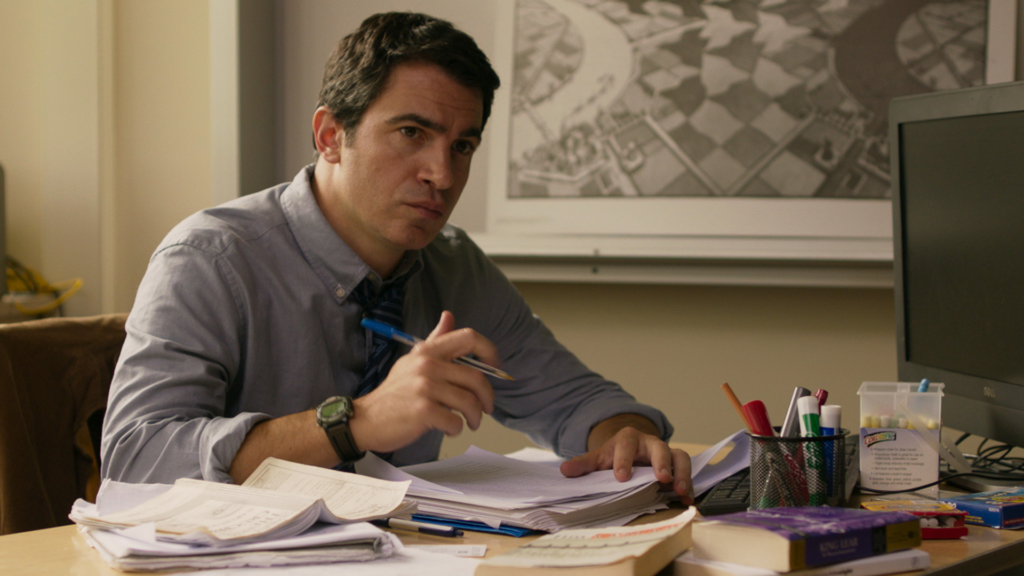Debut feature filmmaker Quinn Shephard stars (and writes, produces, and directs) as Abigail, a high school student coming back to school after mysteriously leaving the previous year. Heavily influenced by theater, Abigail is constantly bullied for her flair for the dramatic arts, as well as for her past.
As the new school year goes on, a substitute teacher, Jeremy (Chris Messina), gives Abigail the role of Abigail Williams in a showcase production of Arthur Miller’s The Crucible, in which Abigail is perceived to be seductive and powerful. Slowly, Abigail adopts the persona of Abigail Williams, inspiring her to break out of her shell and initiate an affair with Jeremy, somewhat mirroring a subplot of Miller’s play. Of course, it’s only a matter of time before word begins to spread among the other students.
In several interviews, Shephard mentions that she wrote the screenplay at the age of 15 and continued to expand and polish the piece over the course of the following years. The characters exhibit raw emotion, similar to that of a dramatic teenage nightmare, alluding to Shephard’s adolescence at the time of the script’s creation. Fuelled by themes of revenge and jealousy, the ability to portray these emotions with such authenticity is more or less exclusive to the teenage mind-set. Blame is no masterpiece, but the anger, frustration, and the need to belong among its female leads are real, and ultimately refreshing.
As the plot thickens, romantic tension grows between Abigail and Jeremy. The film’s climax takes place after a heated rehearsal when the two kiss, and then pull away, alarmed by a loud noise in the distance. The inappropriate nature of their actions is clear to them, and yet they continue the affair. Soon after, their kissing leads to sex.
Despite the passionate and powerful acting from the female-dominated cast, the story line of a student and teacher affair feels rather stale. The plot consists of multiple twists and turns, such as the use of the edgy cheerleader, a contemporary character archetype, Melissa (Nadia Alexander), who attempts to seduce Jeremy and seeks revenge against Abigail. Overall, it doesn’t bring anything to the table. The tension of the film builds slowly and surely, but after the kiss, every other dramatic scene feels like it’s trying to one-up the previous scene.
Despite its shortcomings, Blame gets teenage desperation right. In each of the four main female characters, there is something that screams anxiety as they portray the sensation in a totally realistic way. Abigail wants to feel like she’s good at something, such as acting or winning Jeremy’s admiration. She wants to feel like she’s not just some weird girl. Melissa has a painful desire to have all eyes on her, and does so by acting out. Sophie (Sarah Mezzanotte) wants to please Melissa, but also wants to have power herself, resulting in the downfall of her friendship with Ellie (Tessa Albertson). Ellie, the quiet best friend of Sophie, wants to escape her life and does so by writing in a journal. All of these characters appear incredibly real. They exhibit the various ways that teens act out and prove that young women on screen can be multifaceted.







Leave A Comment